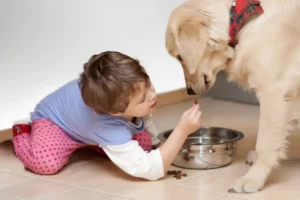Checklist of Kindergarten Milestones
In kindergarten, your child will learn many of the basic skills needed to read, write, and do math. He’ll also learn to get along with others and to follow rules.
The German word kindergarten means “a child’s garden,‚””and this first year of formal school will be filled with opportunities to plant seeds of learning for your child.
What kindergarten teachers hope to see on the first day of school are children who are healthy, mature, capable, and eager to learn. In reality, however, they welcome all children into their classrooms regardless of what they can or cannot do. Their mission is to help all students grow in physical, social, behavioral, and language skills so they are prepared for the challenges of first grade.
There’s no perfect formula that determines when children are truly ready for kindergarten. But you can use this checklist to see how well your child progresses in acquiring these skills throughout the year.
Don’t worry if your child seems to have only a handful of these skills the first time you read the lists. Check the skills he has mastered, then review the lists every month to see what additional skills he can accomplish easily. Young children learn so fast! He may struggle with a skill this month but have it mastered the next. You will be amazed to see how many items you can check by the end of the year!
Physical Development and Motor Skills
By the end of the kindergarten year, does your child:
- manage his own bathroom needs?
- dress himself (coat, socks, shoes)?
- cut two-inch circles with scissors?
- trace basic shapes with some control?
- identify picture likenesses and differences?
- identify basic colors?
- recognize groups of one, two, three, four, and five objects?
- count to 10?
- sort similar objects by color, size, and shape?
- notice the difference between textures?
- use a fork properly?
- print his name in capital letters?
- play bounce-and-catch with a big ball?
- skip?
- hop forward on one foot and backward with both feet?
- change direction when running?
- walk down stairs using alternate feet?
- initiate his own leisure-time activities?
Social and Behavioral Skills
By the end of the kindergarten year, does your child:
- listen to stories without interrupting?
- pay attention for short periods of time to adult-directed tasks?
- do tasks the first time asked?
- follow two or three oral directions?
- finish one activity before starting another?
- understand that actions have both causes and effects?
- take turns and share with others?
- enjoy interacting with four to five children without continual supervision?
- know how to follow rules?
- recognize authority figures?
- respect other people’s property?
- show an interest in the outside world, beyond home and school?
- enjoy pretend play, imitating adult roles?
- work independently?
- spend time apart from you without being upset?
Language Skills
By the end of the kindergarten year, does your child:
- speak understandably?
- talk in complete sentences of five to six words?
- use compound sentences?
- use contractions?
- look at pictures and then tell stories?
- relate a familiar story without picture clues?
- explore a variety of roles through creative play?
- recognize rhyming sounds?
- show understanding of general times of day?
- tell the days of the week in order?
- identify the beginning sound of some words?
- sing the alphabet song and know some letters?
- recognize some common sight words such as “stop”?
- know his address and phone number?
- tell a simple joke?
- tell a simple story in sequence?
- ask the meaning of new words?

















